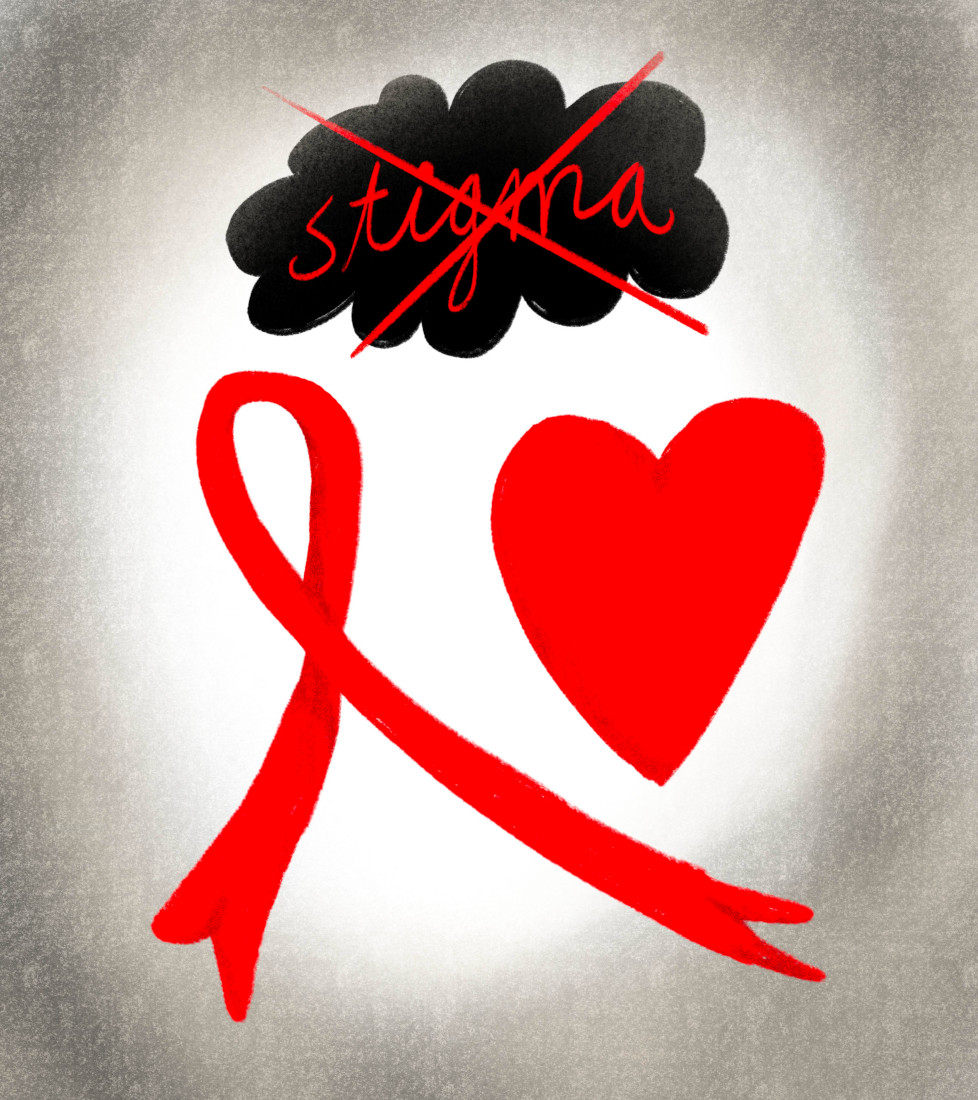HIV disclosure laws in Canada hurt more than they protect
Mother of goo
Illustration by Talia Steele
In HIV-focused healthcare and advocacy, this is known as U=U, or undetectable equals untransmittable. Viral load is measured by what are called “copies” per millilitre of blood. In Canada, an undetectable viral load is considered 200 copies/ml or less.
Per Canadian law, if someone living with HIV chooses to not disclose their status to a sexual partner and they do not use a condom or they have a viral load of 1500 copies/ml or higher, they can be charged with aggravated sexual assault and face prison time.
HIV is transmittable through five bodily fluids: blood, semen, vaginal fluid, anal fluid and breast milk. It is not transmittable via sweat, saliva, urine, tears, feces or skin-to-skin contact.
Proper use of a condom during penetrative sexual activity is effective in preventing transmission of these fluids and can lower risk of transmission by 80 per cent. (On top of this statistic, the chance of HIV transmission even without ART or a condom, for all types of penetrative sexual activity, is less than two per cent.)
Dr. Karen Busby and Dr. Davinder Singh explain in their paper “Criminalizing HIV Non-Disclosure: Using Public Health to Inform Criminal Law” that “with a viral load less than 200 copies/ml, the risk transmission of HIV, even without a condom, is less than 1 in 100,000 and may not even be possible.” They then compare this statistic to being struck by lightning or dying in a vehicular collision.
The Department of Justice Canada acknowledges that “the most recent medical science on HIV transmission is therefore relevant to determining if there was a realistic possibility of transmitting HIV,” and there have been statements similar to this released by the House of Commons Standing Committee on Justice and Human Rights. However, any responsive changes are yet to be seen.
Aggravated sexual assault is a severe charge that, in some cases, can result in life in prison and is a comparable charge to homicide. The defendant can be charged and sent to prison even without transmission occurring. Perhaps this makes sense if there truly was ill intent to try and nonconsensually transmit HIV, but this is rarely ever the case. Even if it were the case, an HIV diagnosis is not synonymous with murder. With treatment, HIV never progresses to AIDS.
It is not a crime to live with HIV. HIV treatment exists that allows for PLHIV (people living with HIV) to have normal, lengthy lifespans. PLHIV can have healthy sex lives and healthy pregnancies.
The current Canadian laws around HIV disclosure do not take into account the real transmission risks of HIV, further promoting stigma around fearing PLHIV as extremely contagious and irresponsible. The laws also use a charge concurrent with homicide. HIV is not a death sentence. Furthermore, these laws systemically stigmatize getting tested and contribute to intimidation and fear.
It is in the interest of public health on a macro scale to re-address the current Canadian laws on HIV disclosure.
For HIV resources, visit these links:
Madeline Rae, University of Winnipeg alum, is a sex educator and writer living in Mi’kma’ki, the ancestral and unceded territory of the Mi’kmaq People. She holds a BFA in performative sculpture, a BA in psychology and is studying her master’s of clinical social work at Dalhousie University.
Published in Volume 77, Number 06 of The Uniter (October 20, 2022)







